This article shows you how to update a computer's drivers. These are small software programs that allow the operating system to use and manage all the hardware components of the computer, such as the sound card, video card, USB drives, and so on. Normally, drivers are installed automatically as soon as the hardware device is installed or connected to the computer. However, sometimes you need to manually intervene to install or update a problematic driver. In the case of Windows computers, driver status management can also be performed using the "Device Manager" system window. In all scenarios (whether using a Windows system or a Mac) it is always possible to find the drivers directly from the website of the manufacturer of the hardware devices installed in the computer.
Steps
Method 1 of 4: Windows
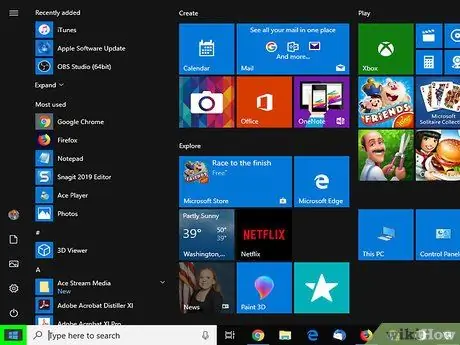
Step 1. Access the "Start" menu by clicking the icon
It features the Windows logo and is located in the lower left corner of the desktop. Alternatively, press the ⊞ Win key on your keyboard.
Windows 10 can handle updating virtually any driver on your system using the Windows Update feature. Normally the update process takes place automatically, but you can check for new updates at any time
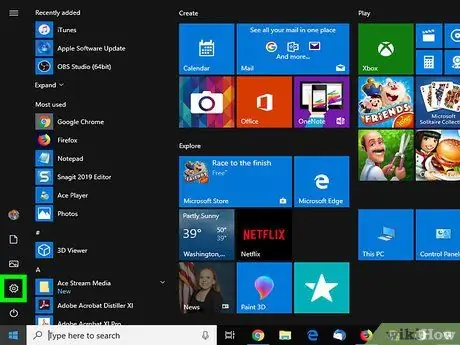
Step 2. Launch the Settings app by clicking the icon
It features a gear and is located at the bottom left of the "Start" menu. The Windows "Settings" window will appear.
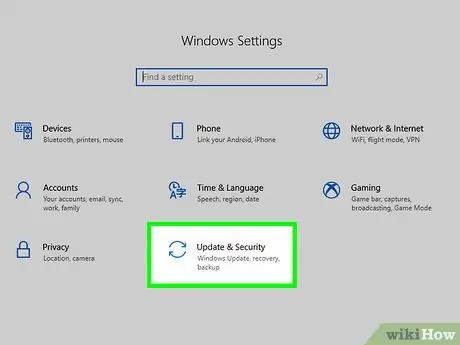
Step 3. Select the "Update & Security" item by clicking the icon
It is visible within the "Settings" page.
If the "Settings" window should directly show a specific menu, select the option Home, located in the upper left corner of the screen, to return immediately to the main screen.
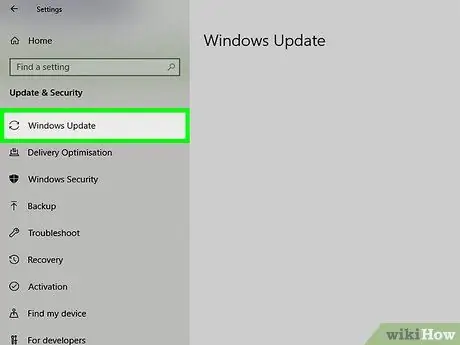
Step 4. Go to the Windows Update tab
It is listed inside the left sidebar of the window.
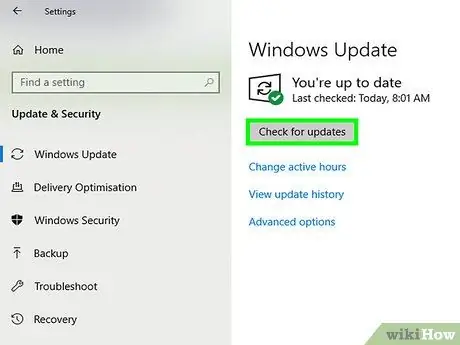
Step 5. Press the Check for Updates button
It is located at the top of the page. Windows will immediately check for new updates to the operating system and device drivers.
Depending on when the system was last updated, the process of checking for new updates could take several minutes
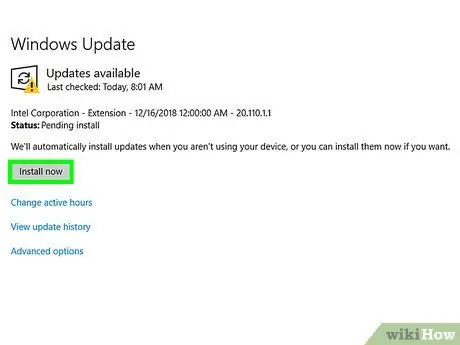
Step 6. If necessary, press the Install Updates button
It will appear at the top of the page when new updates are found to be installed. The individual update installation files will be downloaded to your computer.
- Depending on the version of Windows on your computer, updates may be downloaded automatically on a regular basis.
- After installing the updates, you may need to restart your computer.
Method 2 of 4: Mac
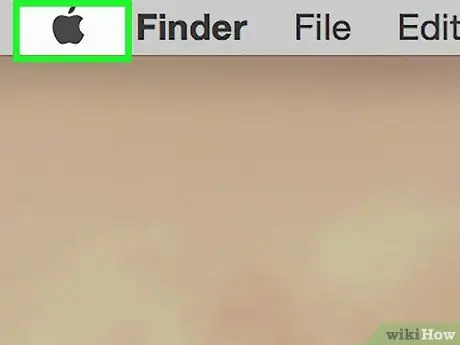
Step 1. Enter the "Apple" menu by clicking the icon
It features the Apple logo and is located in the upper left corner of the screen. A drop-down menu will appear.
All Mac driver updates are created, managed and distributed directly by Apple
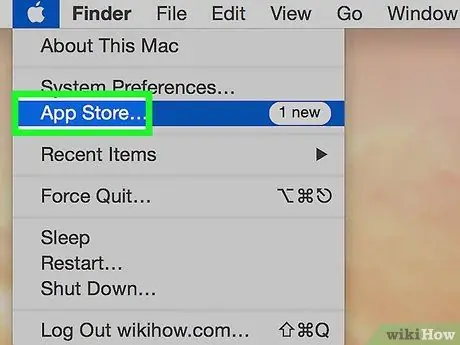
Step 2. Select the App Store… item
It is one of the options present in the drop-down menu that appeared. You will be automatically redirected to the Mac App Store.

Step 3. Access the Updates tab if necessary
If the App Store window does not automatically show the contents of the "Updates" tab, you will need to manually select it by clicking the corresponding name listed at the top of the App Store window. You will see a list of all updates available or to be installed, including those for hardware device drivers.

Step 4. Press the Update All button
It is gray in color and is located at the far right of the App Store window. All available updates will be downloaded and installed on your Mac.
Alternatively, you can press the button Update located to the right of the individual drivers you want to be updated.
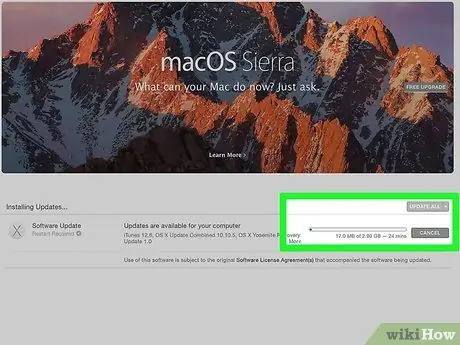
Step 5. Wait for all updates to be downloaded and installed
This step may take several minutes to complete, and after the installation is complete, you may need to restart your Mac.
If the installation of a specific driver is blocked by the Mac, it is likely that the developer is not certified. In this case you will have to manually authorize the installation of the program
Method 3 of 4: Use the Windows Device Manager Window
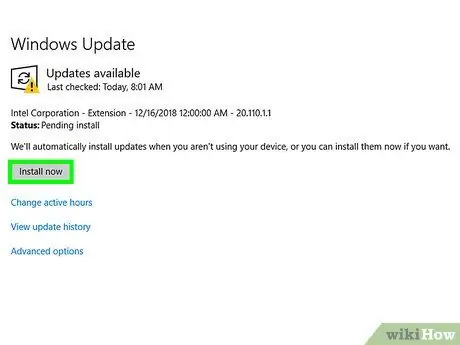
Step 1. Understand when to use this method
The "Device Manager" system window allows you to search the web for all Microsoft certified drivers. It should be noted that you should only use the "Device Manager" window after using Windows Update to update the entire system. The reason for this is that Windows Update is much more efficient in finding the correct drivers.
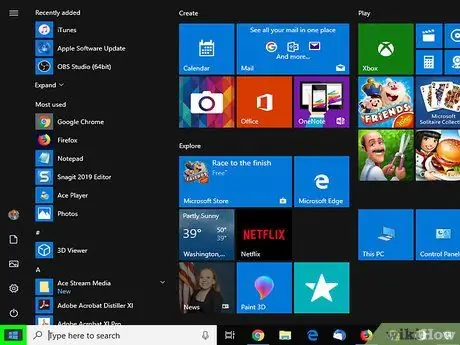
Step 2. Access the "Start" menu by clicking the icon
It features the Windows logo and is located in the lower left corner of the desktop. If you want you can simply press the ⊞ Win key on your keyboard.
Alternatively, select the "Start" icon with the right mouse button
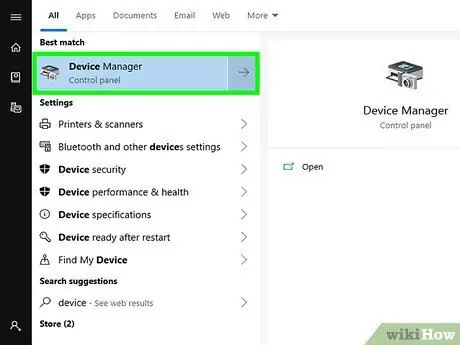
Step 3. Open the "Device Manager" window
Type in the device manager keywords in the "Start" menu, then select the item Device management which will appear at the top of the "Start" menu.
If you have chosen to select the "Start" menu icon with the right mouse button, click the item Device management from the context menu that appeared.
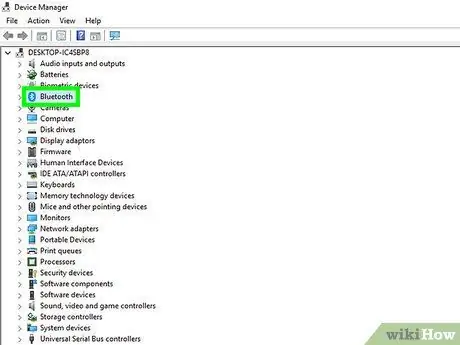
Step 4. Find the category to which the hardware device whose driver you want to update belongs
Scroll through the long list in the "Device Manager" window until you find the hardware category to which the item you want to update belongs.
For example, if you need to update the drivers of a Bluetooth device, you will need to expand the "Bluetooth" section
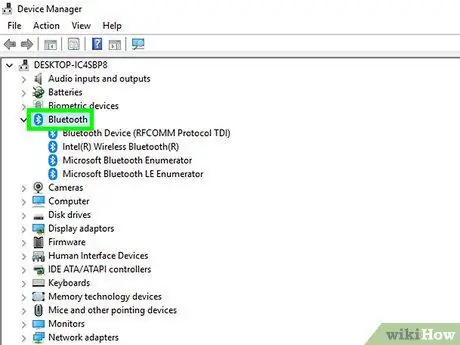
Step 5. Double-click the section name you found
This will display a list of all devices currently connected (or that have been connected in the past) to the computer.
If the category already shows the list of all the devices that feature it, you can skip this step
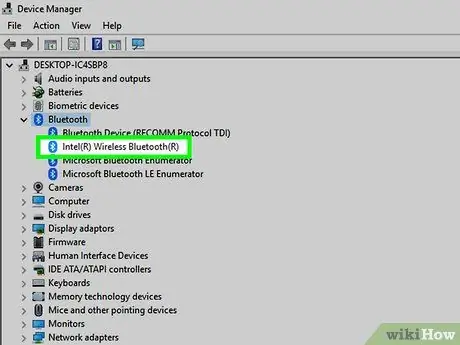
Step 6. Select the hardware device of your interest
Click the name of the item whose drivers you want to update.
If you can't find the item to update in the list, it means it's not currently installed on your computer. Close the "Device Manager" window, connect your device to your computer, follow the on-screen instructions and reopen the "Device Manager" window
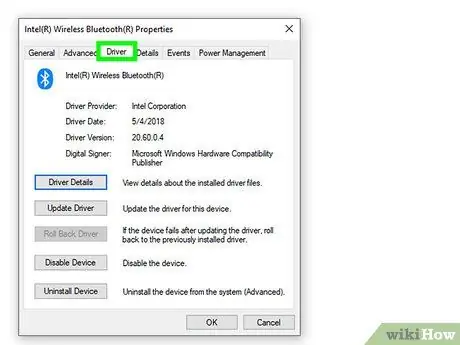
Step 7. Access the Actions menu
It is located at the top of the "Device Manager" window. A list of options will be displayed.
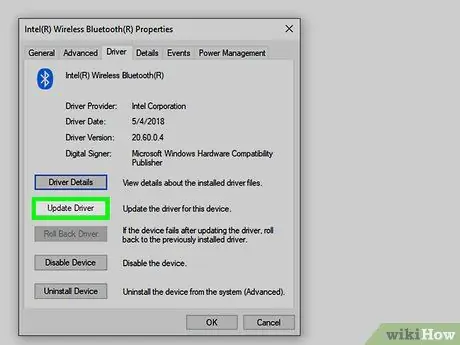
Step 8. Choose the Update Driver item
It should be the first on the menu from the top. A new dialog will appear.
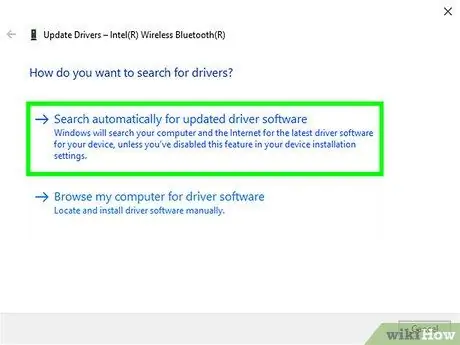
Step 9. Select the Automatically search for an updated driver option
It is displayed in the center of the appeared window. Windows will start looking for an updated version of the selected device driver.
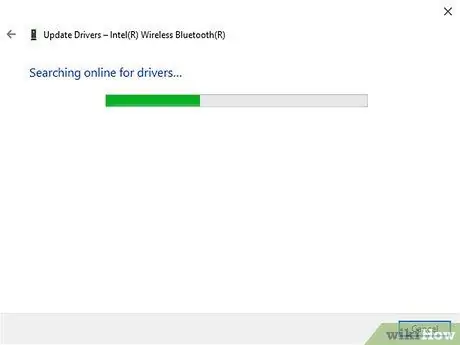
Step 10. Follow the instructions that appear on the screen
If a new version of the driver is available, you will be offered to install it. Depending on the type of hardware device, you may have to scroll through some warning and configuration screens before the installation actually begins.
- After the update process is complete, you may need to restart your computer.
- If the warning message "The best drivers for your device are already installed" appears, Windows has not found the correct (or updated) driver to use. In this case you can use the driver found on the device manufacturer's website and install it manually if you are sure that the current one is not up to date.
Method 4 of 4: Use the Drivers Distributed by the Hardware Manufacturer
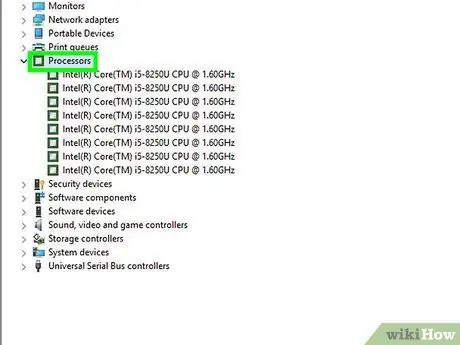
Step 1. Determine the nature of the hardware component to be upgraded
When manually installing a driver, you need to download the file to use directly from the device manufacturer's website. In this case, you need to know the make and model of the device in order to find the updated driver to install.
- For example, if you own a Razer keyboard, you will need to log into the Razer website in order to locate the correct driver to install.
- If you are using a laptop, normally all the necessary drivers are distributed directly on the computer manufacturer's website within the page for the specific model.
- The model of the device or hardware peripheral is clearly stated in the accompanying documentation. Alternatively, you can refer to the "Device Manager" system window (in case Windows was able to recognize the make and model of the device).
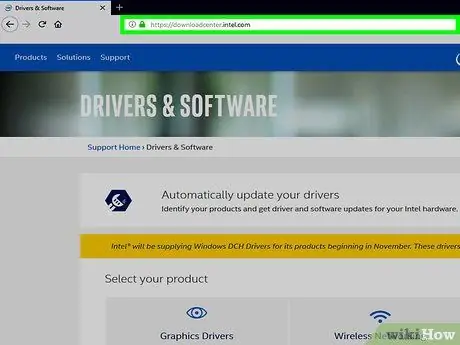
Step 2. Log in to the manufacturer's website
Once you have determined which item you want to update, you will need to visit the manufacturer's website support page. Below is a list of the most popular hardware manufacturers. If what you are looking for is not listed, search online:
-
Motherboards
- Gigabyte - gigabyte.com/support-downloads/download-center.aspx?ck=2
- Intel - downloadcenter.intel.com
- MSi - msi.com/service/download/
- ASRock - asrock.com/support/download.asp
- Asus - support.asus.com/download/options.aspx?SLanguage=en&type=1
-
Video cards
- NVIDIA - nvidia.com/Download/index.aspx?lang=it-it
- AMD / ATI - support.amd.com/en-gb/download
-
Laptop
- Dell - dell.com/support/home/en/it/itbsdt1/Products/laptop?app=drivers
- Gateway - gateway.com/worldwide/support/
- HP - support.hp.com/en-gb/drivers
- Lenovo - support.lenovo.com/us/en/products?tabName=Downloads
- Toshiba - support.toshiba.com
-
Network cards
- Linksys - linksys.com/us/support/
- Netgear - downloadcenter.netgear.com/
- Realtek - realtek.com.tw/downloads/
- Trendnet - trendnet.com/downloads/
-
Optical drives
- Samsung - samsung.com/us/support/
- Sony - sony.storagesupport.com/models/21
- LG - lg.com/us/support
- LiteOn - us.liteonit.com/us/service-support/download
-
Sound Cards and Other Peripherals
- Creative - support.creative.com/welcome.aspx
- Logitech - support.logitech.com/
- Plantronics - plantronics.com/us/category/software/
- Turtle Beach - support.turtlebeach.com/files/

Find and Update Drivers Step 24 Step 3. Locate the section labeled "Download" or "Driver"
The location or procedure to follow to locate this section varies from site to site, but in most cases the link to this section of the site is located at the top of the main page. You may need to select the option first Support or Assistance.
In some cases, to access the section dedicated to drivers or assistance, you will have to move to the bottom of the page and click on the item Support, Assistance or Driver.

Find and Update Drivers Step 25 Step 4. Download the new driver files
Click the name of the driver installation file or select the link or button Download placed next to the chosen item.
- Most drivers are distributed as an executable file or package specific to the hardware component or device under consideration. On the other hand, older or less popular drivers are distributed in the form of ZIP archives.
- Sometimes the device management software is distributed separately from the driver.

Find and Update Drivers Step 26 Step 5. Run the setup file you just downloaded
Double-click the corresponding icon and follow the instructions that are shown on the screen. If you downloaded the new driver as a ZIP archive, you will need to unzip it by following these instructions:
- Windows - double click the ZIP file icon, access the tab Extract, push the button Extract everything and finally press the button Extract when required.
- Mac - double-click the ZIP file icon and wait for the data extraction to complete.

Find and Update Drivers Step 27 Step 6. If you are using a Mac, you will need to authorize the installation of programs created by non-certified developers
If you received an error message when you tried to install the new driver, please follow these instructions:
- Push the button OK placed inside the window containing the error message;
-
Access the menu Apple clicking the icon

Macapple1 then choose the option System Preferences …;
- Click the icon Security and Privacy;
- Push the button Open anyway located next to the message "Opening [filename or program_name] has been blocked because it is not from an identified developer" displayed at the bottom of the page.
- Now continue with the installation of the new driver (you complain that you need to restart the installation procedure by double clicking on the file icon again).

Find and Update Drivers Step 28 Step 7. Manually install the drivers on a Windows computer
If the installation files are in the form of a ZIP archive, you will need to proceed with the manual installation. Follow these instructions after opening the "Device Manager" system window:
- Select the hardware device whose drivers you want to update;
- Access the menu Action;
- Choose the option Update Driver;
- Select the item Search for driver software on your computer when required;
- Access the folder where you extracted the contents of the ZIP file and select any ".inf" file present while holding down the Ctrl key;
- At this point, press the button You open.






